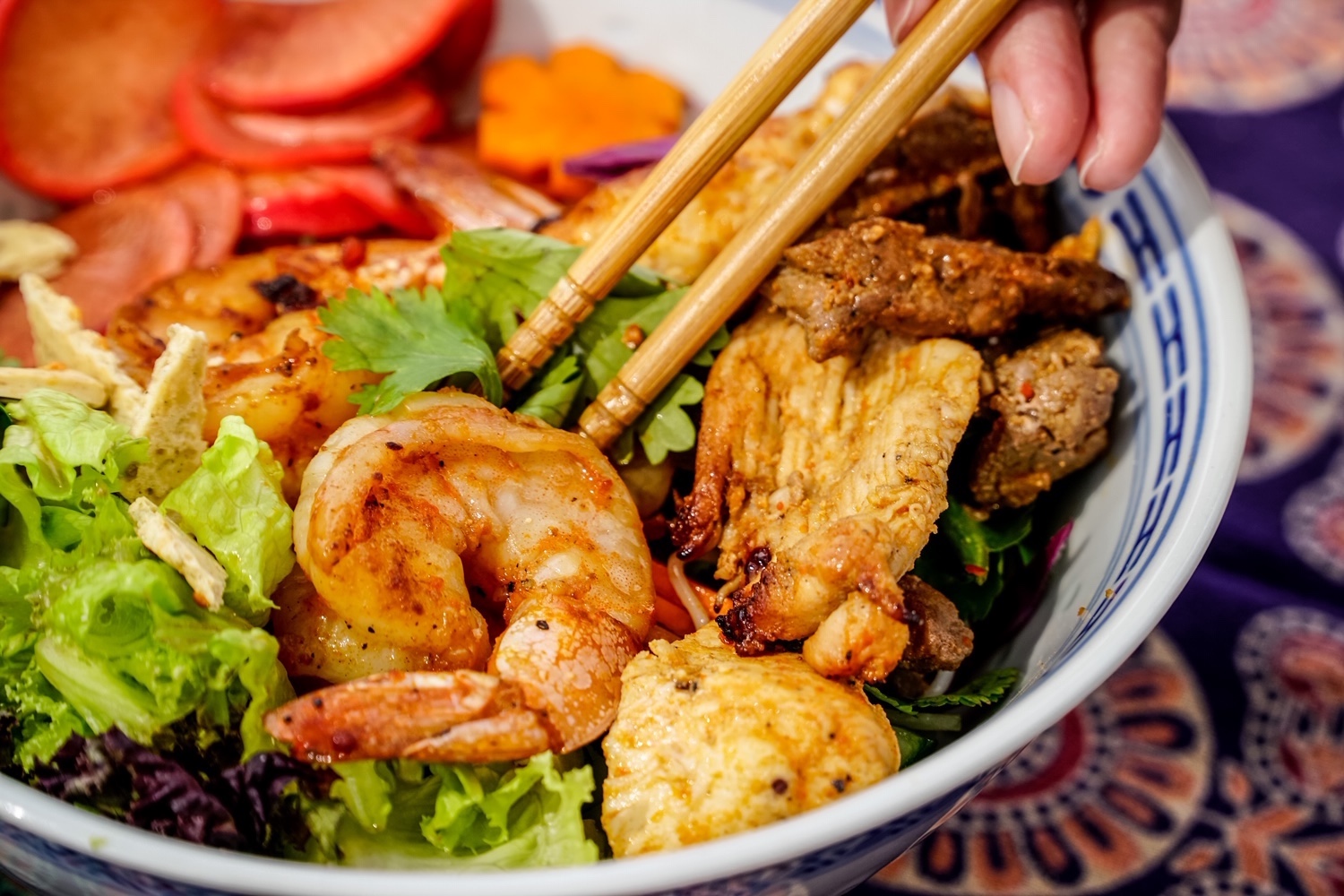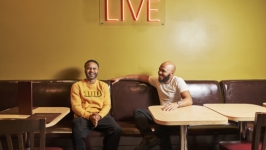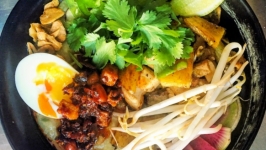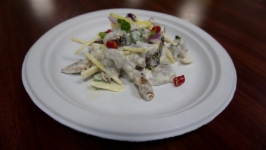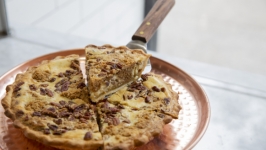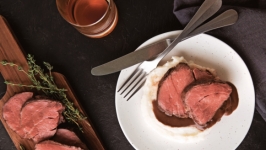There’s No Space Like Hando’s
If you were to write a movie about Hando Youssouf, the first scene might be of a 17-year-old Indian-Chinese-Vietnamese student answering an advertisement in a French newspaper. Zoom in and you would see the words in print asking the reader to consider coming to Scandinavia to go door-to-door selling photos. As witnesses to the screen we’d learn this act would require Hando, whose insatiable spirit already had visions of chasing the midnight sun and seeing aurora borealis, to drop out of high school, leave his father––a hospital worker who relied on him to help roll chả giò to sell for supplementary money to support the family––and mother––who spent the majority of her time away from the home while trying to recover from the trauma she suffered during the Indochina War––and his five siblings.
Small-minded people in the suburbs would tell Hando not to go, and common sense would argue it would be easier to stay in France, the country where Hando’s parents, pregnant with their eldest child about to be born in 1954, settled after immigrating from Vietnam. Eventually, and without much hesitation, we’d watch our protagonist start packing his bags to leave Paris. He and his brother would make their way north to start a new life for the first, but certainly not the last, time for Hando.
Scandinavian locals thought the boys were refugees, and therefore supported them by purchasing the pictures they came to sell, and the pair found themselves making 400 krone (about $44 USD) a day for only two or three hours of work. In what felt like a fairytale to them in 1979, this hustle meant they could afford to provide for themselves, staying in small hotels, cottages or sometimes camping, and even go skiing in the wintertime. Sure, it was a strange way to make money, Hando admits, but it led him down a rabbit hole of adventure, leading him to a next stop in Denmark.
In Copenhagen, Hando hung out at the legendary Euro-club Jazzhus Montmartre, seeing acts like Chet Baker and Stan Getz, and trading foot massages and yoga teachings for guitar lessons and rides around town. The woman he’d come to live with set him up with a holistic cooking gig, which tapped into the fresh food techniques he’d learned from his father. He describes this style as “street food”––which, for New Yorkers, may conjure images of greasy “street meat” from food carts, but for Hando means vegetable-forward, wok-fried or blanched culinary creations––to fuel the body while learning the martial art of Vô Vietnam, a practice best paired with Hando’s attitude of ever-evolving and always moving forward.
In the ’80s, and in a region ahead of the times with organic produce and bread baked from scratch, it was a life that could be categorized as a mecca for a burgeoning gourmand. Soon enough, however, Hando would find his way home and into a new cooking space, eventually opening two restaurants––Paris Hanoi and The Little Hanoi––in the early 2000’s with his brothers and future wife Marie after first finding success selling bánh mì at a Parisian flea market. Later, two curious kids and a celebrated cookbook would be added to Hando’s list of achievements. At this point in the script, one might wonder how Hando made it this far with only about $200 in his pocket as a kid leaving France for the first time––that is if you don’t explain it away with a belief in karma, fate, lessons learned in a past life or whatever or whomever you credit with making the universe work. But those who live like Hando does, with enough experiences for 100 ordinary lives, know the true power of touching the lives of others, of listening deeply and tapping into the charisma we inherit from the ones who came before us, like Hando did from his dad.
For any cinephile, one would be heartened to watch credits to roll from here, but lucky for us, Hando has only gotten started.
These days, you might find Hando hanging around Chinatown, taking meetings in a chic space loaned to him by one of his Parisian friends in the fashion industry. After an hour of talking over herbal tea, you might consider breaking from the brain massage of his inspired words flowing through your mind only to change your clothes to meet him in a few hours for your first-ever martial arts class. He’ll smile and say “it’s a start” when you walk through the drab interior of a Polish church in Greenpoint, one floor filled with safety mats and French-speaking students of all ages, including Hando’s sister-in-law, the actor and film director Cécile Delepière, and Antoine Desjonqueres, who comes from Harlem for nearly every class, carrying a long fighting stick on the train. When Desjonqueres reminds you “Hando is a great chef,” you think about the concept Hando wants to create: a space for transmitting information about integrated living (reflexology, yoga, martial arts) with incredible food (Vietnamese-inspired “street food”) and an opportunity to connect deeply with one another in a real way.
It sounds like a movie the way Hando explains he came here for the first time 14 years ago because once, when he was young, he saw a poster of NYC and thought it was his destiny to live here, like he might die if he didn’t despite everyone saying “don’t even think about it, we don’t have any money.”
But life isn’t a movie. Especially life in America.
Hando doesn’t downplay that New York is a tough city, and laughs when he explains how his son, who is not even 10 years old and has traveled to more than 10 countries, desperately wants to try America’s classic cuisine: the ever-elusive McDonald’s.
Hando and his family moved to New York almost a year ago in 2019. He still makes rent the way he always has: by sharing his thoughtfully crafted dishes through culinary consulting and cooking for small groups (like this upcoming event with Edible Queens and Juma) and instructing mixed spiritual-and-physical classes (such as the one in Greenpoint two to three times a week)––all in effort to help others relax and release toxins in a calming environment. He says hopefully his dream space, the one that is bigger than any one person or idea, will come to fruition, but maybe it won’t, and that’s okay, because he’ll figure it out––like he always has.
On March 4, join Vietnamese-French chef Hando Youssouf for a tasting menu—with drink pairings—in an intimate home setting with a small group of guests. Get tickets here.


